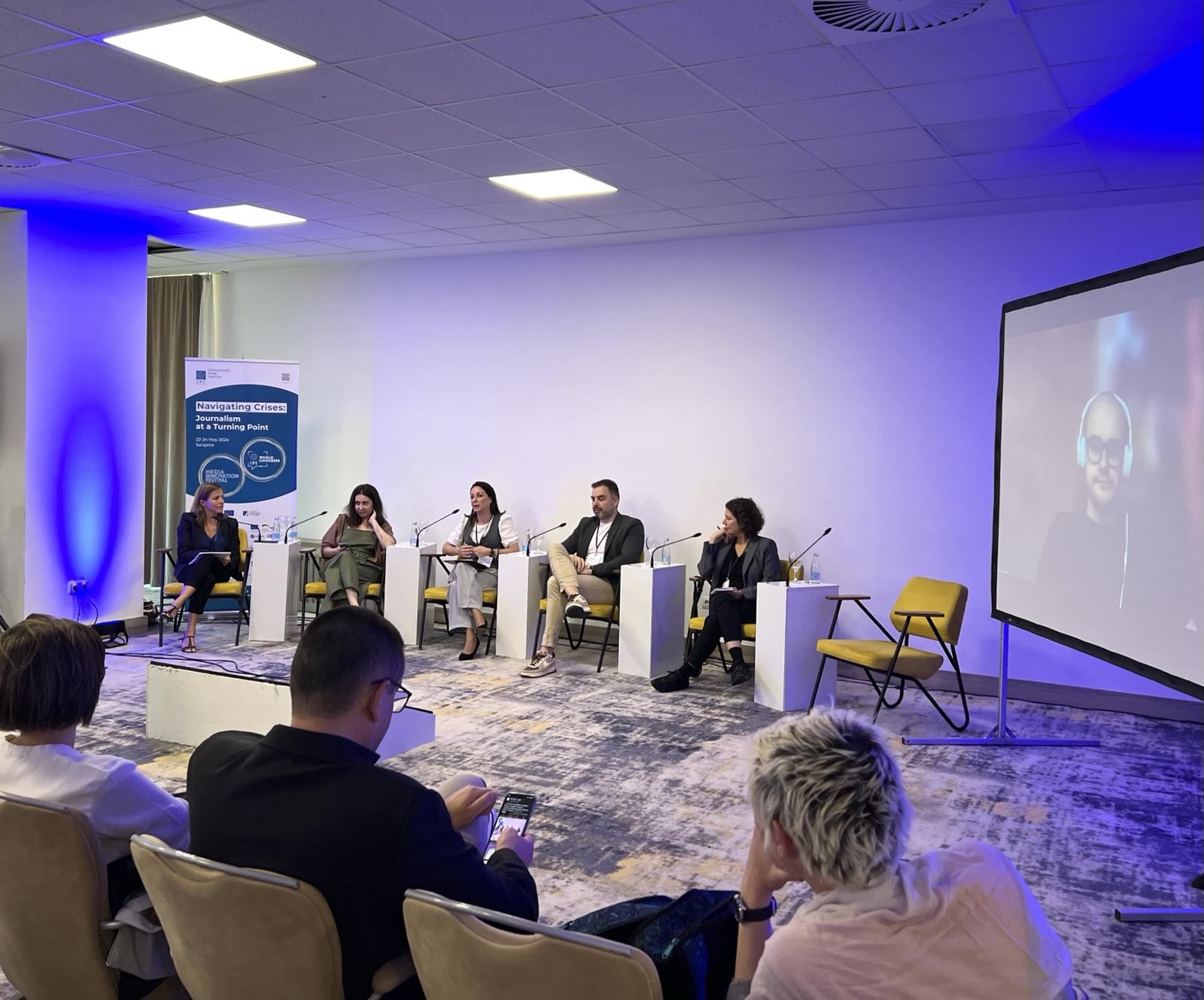Heightened by the economic impact of the COVID-19 pandemic, wars (such as the one in Ukraine), and the continuous dominance of tech giants like Google and Meta in the digital advertising market, the crisis in local journalism has significantly affected how news organizations serve their communities’ needs and preserve editorial independence.
To discuss potential solutions, journalism leaders from multiple countries gathered for a panel discussion titled Putting Communities First: How Local Media Are Engaging Audiences – and Keeping Their Trust, during the 2024 Media Innovation Festival in Sarajevo. Moderated by Saorla McCabe, the advisor for communication and information strategy at UNESCO, the panel began by mapping the challenges that local media face globally.
The discussion started with a question: How can local media capitalize on their unique strength of local coverage and innovate to generate revenue while safeguarding their mission and independence?
From the São Paulo metro region with 22 million people to smaller audiences in Ukraine, Montenegro, and Bosnia and Herzegovina of around 20,000, forging and maintaining close-knit relationships on the ground, diversifying revenue streams, listening to feedback, and involving the community in the teams have been central to local media strategy.
>> Receive our innovation newsletter The Outlook directly in your inbox.
For Izabela Moi, co-founder and CEO of Agencia Mural, their unique value proposition comes from “simply doing journalism for a completely unserved audience” in greater São Paulo, who are both financially and socially underprivileged.
It also involves training and working with over 70 local correspondents (mostly young professionals) from the very communities and neighborhoods they aim to cover. Analogous to international correspondents, these journalists are deeply embedded in the local context, ensuring that their stories capture the necessary nuances.
Albina Vicković, executive director for development and innovation at RTV Slon, reflects on the journey that led to the rebranding of their media organization in Tuzla, the third-largest city in Bosnia and Herzegovina.
In this transition, listening to people and including the audience was central to their work. Understanding the audience’s habits of engaging with digital media proved helpful in integrating all forms of content, with the help of tools developed by the Balkan Investigative Reporting Network (BIRN) and social media.
The same tools have been useful for Admir Gjoni, IT specialist, digital content administrator, and project manager of Portal Ul-info, a bilingual media company from Montenegro.
We come from a formerly socialist regime, where the omnipotent state is deeply rooted. If you give your audience the opportunity to freely and secretly express their criticism, they will use it
Admir reiterated the role of empowering wider community dialogue, creating social cohesion, and fostering civic engagement. Portal Ul-info brings relevant and useful content for the everyday life of its citizens, covering topics from local government decisions to environmental issues in the area.
Bringing the perspective of working with a media organization following the full-scale Russian invasion of Ukraine, Lera Lauda, Head of ABO Local Media Development Agency, noted that financial sustainability does not come with a “magic button” – it is a long process that involves demonstrating the role media can play for local communities. International partner support has been vital and has amplified the incredible quality of reporting emerging from local media.
For Nakypelo’s journalist and research and development director, Viktor Pichuhin, the key to financial sustainability lay in both diversification and growing the team, working on the frontlines of war in the Kharkiv region. Engaging in consulting and content creation with partners, like NGOs, did not completely replace advertisement revenues but provided a niche for their growing team of journalists, videographers, and other professionals.
A second new source of income was opening up their Press Centre, inviting the community to organize events, training sessions, board game sessions, and other activities.

